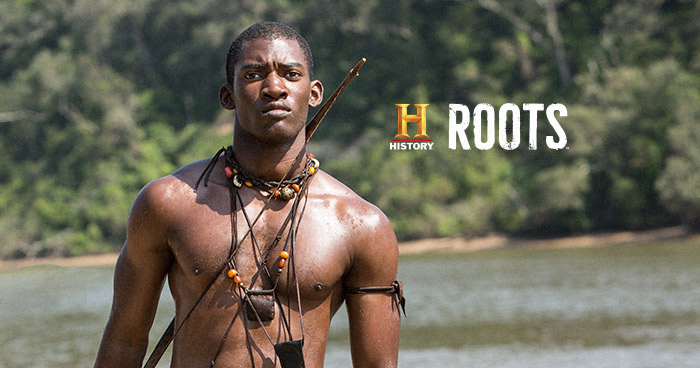This is the best d*mn movie I’ve ever seen. As a black teen growing up in East Point, Georgia, I am ashamed of how my peers spit in the face of our culture by not taking advantage of the opportunities that were paid for by the blood, murder and rape of our ancestors. Watching “Roots” forced me to see through the blinds of implicit racism and made me realize how privileged I am. “Roots,” the iconic TV mini series first produced in 1977, has been revamped, re-imagined and brought back to life by an amazingly talented cast (including T.I., Anika Noni Rose, Forest Whitaker and Laurence Fishburne) and filmmakers (many of whom this time are African-American), powerful cinematic visuals and … the N-word.
The new “Roots” debuts on Monday, May 30 at 9 p.m. on The History Channel. VOX was among the media outlets invited to a special advance screening of Episode One held this month at the Center For Civil and Human Rights.
The way the actors portrayed their roles not only left me with back pain from leaning forward far too long in my chair, but a new-found love for Kunta Kinte (played by newcomer Malachi Kirby). From compelling action sequences to shrill screams of pain, the actors pulled me from my seat in the packed theatre onto the musty slave ship sailing on the Atlantic. Bruce Beresford, Thomas Carter, Phillip Noyce and Mario Van Peebles do an amazing job directing the series and make the words fly from the script onto the screen by delving into the artistic and dramatic cultures of ancient African tribes.
The images contained in “Roots” play on your emotions the way a vibrato played on a violin enhances a song. The impressive camera work makes you feel the anger Kunta Kinte experienced during his fight scenes. His bloodshot eyes appear bright, and his dark brown skin turns dull like burnished mahogany. Kunta Kinte’s village is given a warm, home-like vibe which changes when he gets kidnapped by slave traders.
But for me, the real moment of impact watching “Roots” arrives when the white slave traders drop the N-Bomb. Formerly known as “Nigger” but evolved since hip-hop into “Nigga,” when this word is used in “Roots,” I’m reminded of how much hate the word originally carried. I feel bad that my friends today use it in a flattering way, as if it was created to empower black pride.
Before this screening, I didn’t value the history of African-Americans as much as I do now. Roots finally brought to life the history of slavery in a captivating way which can enthrall and educate young people in a way no history lecture will ever do. Thanks to co-executive producer LeVar Burton (the actor who portrayed Kunta Kinte in the 1977 original mini series) for helping to recreate “Roots” for our generation and for providing people around the world an educational yet inspiring movie.
Jason, 15, attends D. M. Therrell High School. He was one of six VOX teens to attend the “Roots” screening at the Center for Civil and Human Rights.




